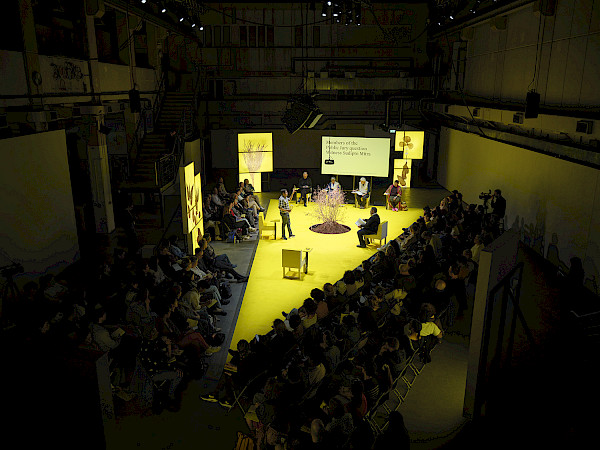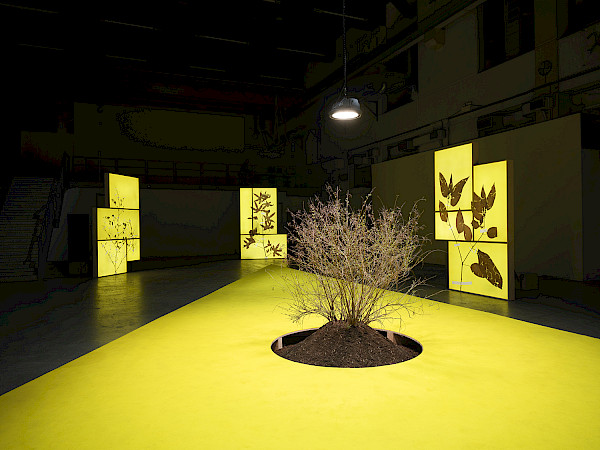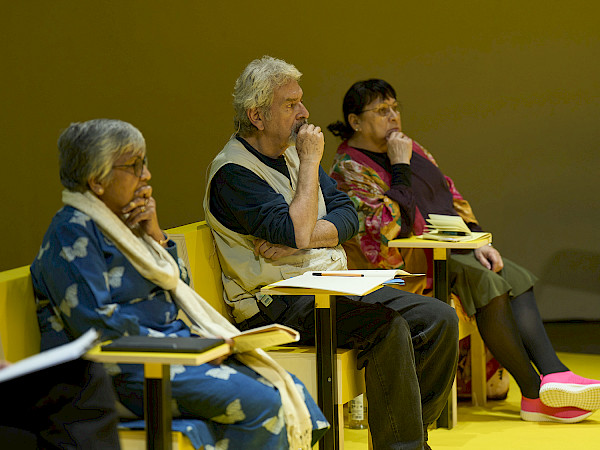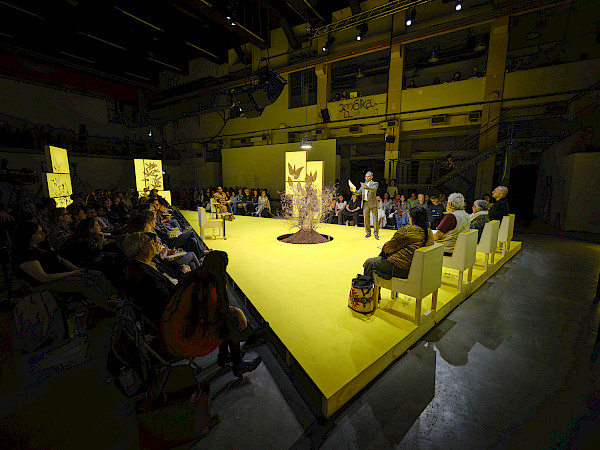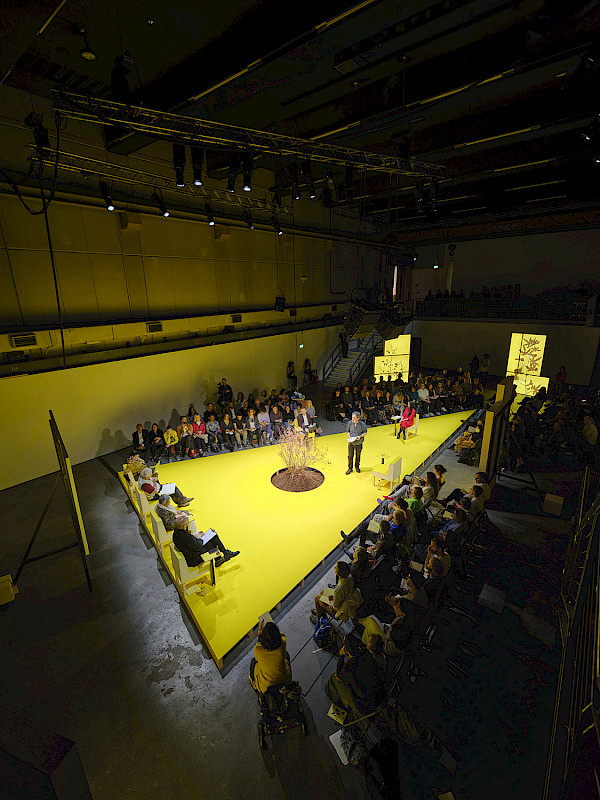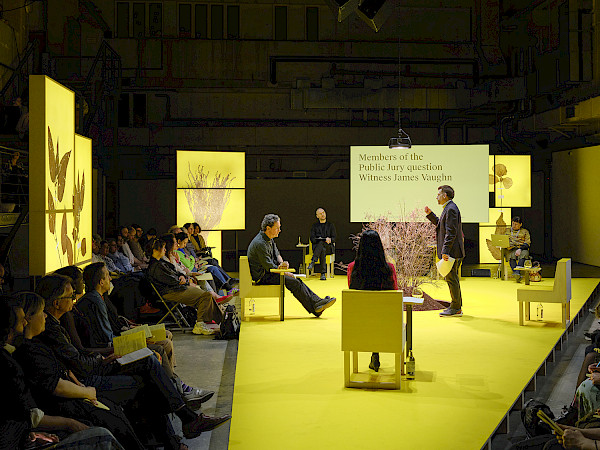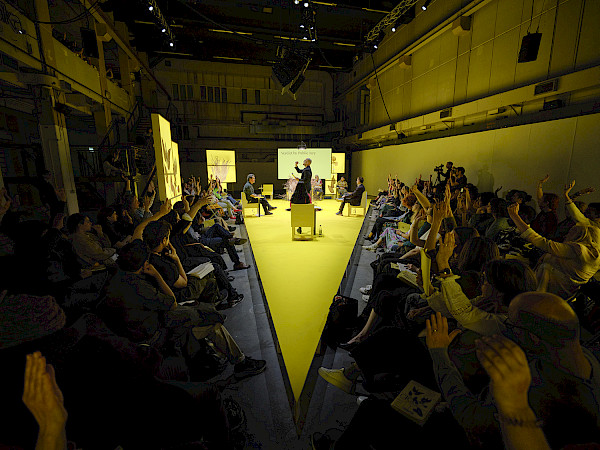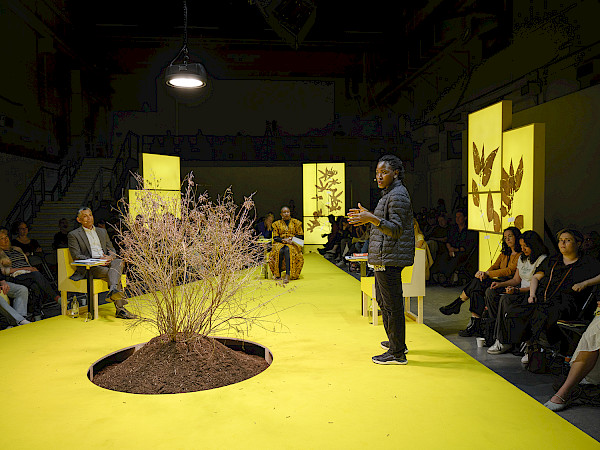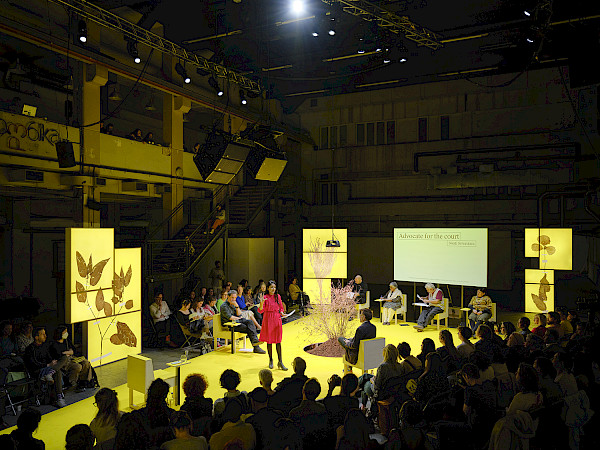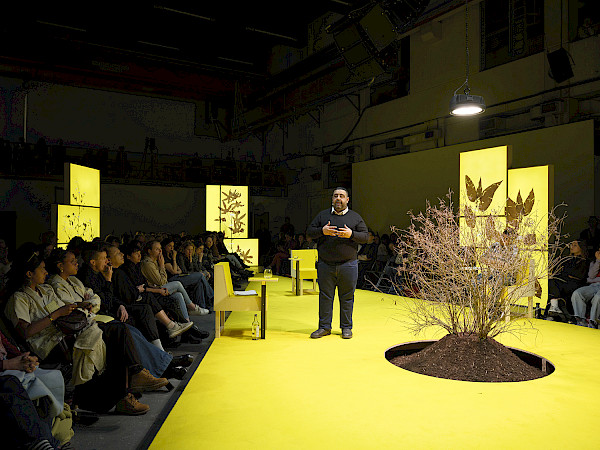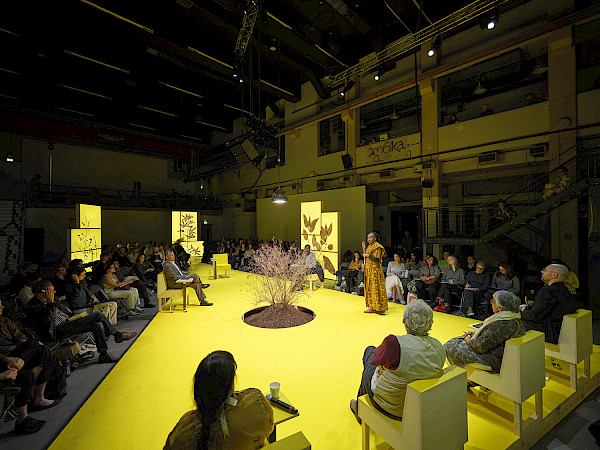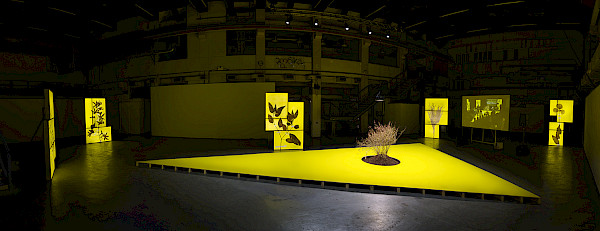The British East India Company on Trial
2025
April 5-24, 2025
Serpentine Galleries at Ambika P3, London
The Court for Intergenerational Climate Crimes (CICC) is a more-than-human tribunal that aims to prosecute climate crimes committed by states and corporations, not only in the past and present, but also in the future. In the CICC the public acts as jury and is tasked with passing a verdict based on The Intergenerational Climate Crimes Act : the legal foundation of the CICC.
The British East India Company on Trial consists of a specially appointed court constructed within the former concrete hall of Ambika P3 in London. It was in London that the East India Company was founded in 1600, and where the corporate entity would subsequently shape the city in its own interests and image.
The court interrogated witnesses regarding the crimes committed by the British East India Company, highlighting the interconnectedness of colonial and climate crimes that continue to shape our devastating present and future. Non-human agents acted as evidence and witnesses in the court, in this case in the form of plants that played a pivotal role in the colonial and industrial projects of the British Crown and the East India Company.
Putting the British East India Company on trial, 425 years after its founding and 168 years after its dissolution in 1857, expands notions of intergenerational justice. It raises questions about reparations for crimes that transcend generations and examines how dissolved entities, like the British East India Company, endure as legal, institutional, and ideological frameworks for extractive capitalism and imperialism, perpetuating ecological collapse.
Following the public hearings, the installation exhibited selected materials from the tribunals in combination with the CICC School: an ongoing programme of lectures, workshops, screenings and trainings to deepen the relationship between artistic and legal imaginaries in the struggle for climate justice.
Contributions by Mostafa Henaway, Sudipto Mitra, Ghulam Nadri, Ruth Nyambura, Leonida Odongo, Hashim bin Rashid, Andy Rowell, Swati Srivastava, James Vaughn, Sharon H. Venne and Ramón Vera-Herrera
-
A PROJECT BY
Radha D'Souza and Jonas Staal
-
PROJECT TEAM
Radha D'Souza and Jonas Staal (artists); Lucia Pietroiusti, Daisy Gould, Isobel Peyton-Jones, Serpentine, with Eva Speight (curators and producers); Daniel Voskoboynik and Muhammed Ahmedullah (research assistants); Nadine Gouders (coordinator and producer Studio Jonas Staal); Paul Kuipers (architect); Remco van Bladel (graphic designer); Ruben Hamelink (photo and video documentation); Studio Kunstwerk / Michael Klinkenberg and Niklas van Woerden (construction); Niall Carter and Eleftherios Dimoulias (venue managers)
-
COMMISSIONED AND PRODUCED BY
Serpentine Ecologies, London
In partnership with Framer Framed, Amsterdam (long term partner), Law Development & Conflict Research Group, CREAM, Ambika P3, University of Westminster, Creative Scotland, Irish Museum of Modern Art (IMMA) and Create Ireland. With special thanks to Mondriaan Fund and Jessica Sweidan.
An Ecological Futurisms initiative at CREAM, Centre for Research and Education in Arts and Media, University of Westminster. Led by Neal White, Matthias Kispert, Roshini Kempadoo












